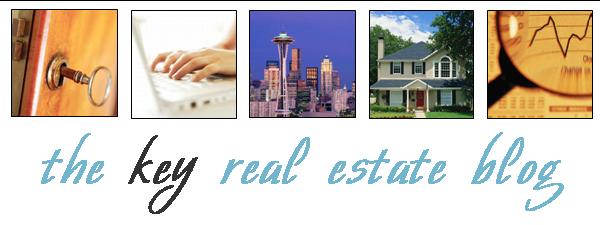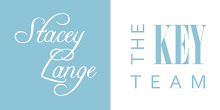by Kenneth R. Harney
The economy continues to send mixed messages -- some encouraging for real estate, some not -- but this week the positive are edging out the negatives.
Take housing prices for example. The research company with the largest database of ongoing real estate transactions - First American CoreLogic, which tracks property values in thousands of Zip codes and neighborhoods - reports that nominal price drops have "stabilized" in 883 core-based statistical areas, showing no declines in the past two months.
Why's that important? Because flattening out is what we need before we can see a cyclical turnaround -- in other words, where even in the hardest hit local markets in California, Florida, Arizona and Nevada, prices have hit bottom.
They're not likely to drop much further, and in some parts of California are now at such bargain levels that large investors are prospecting for entire packages of houses -- ten or more in some cases -- to buy in bulk and rent out.
Gary Crabtree, an appraiser in Bakersfield, California, told Realty Times that he knows of one investor who has a standing order for 20 houses that fit specific price and locational characteristics that he wants to purchase.
The National Association of Realtors sees similar bottoming out -- even the first signs of turnaround -- in a number of key markets in the U.S. In its latest quarterly report, home sales were up year-to-year in 26 percent of all states and 35 percent of metropolitan statistical areas.
Biggest price jumps were in Yakima, Washington, where the median was up 8.9 percent, Binghampton, New York, up 8.7 percent, and Amarillo, Texas, up by 7.2 percent.
On the other hand, the Realtors also reported the national median sales price was down by 7.6 percent from the second quarter of 2007, and now stands at $206,500.
In other key economic developments: New housing starts fell by three percent last month - which is only logical given builders' still bulging unsold inventories.
And mortgage rates took a dip this week to an average 6.47 percent for 30 year fixed. Fifteen year rates slipped below 6 percent to 5.99 percent. New loan applications for FHA mortgages to purchase homes rose slightly, according to the Mortgage Bankers Association of America -- even while applications for conventional home purchase mortgages from Fannie Mae and Freddie Mac dropped for the week.
skip to main |
skip to sidebar
www.key2yourhome.net
Connect with The KEY Team
My Tweets on Twitter
Blog Archive
-
▼
2008
(82)
-
▼
August
(7)
- Real Estate Outlook: Prices Stabilizing
- New Listing in Redmond - Gorgeous Trilogy Home $75...
- Summary of the “Housing and Economic Recovery Act ...
- New Listing - Model Home at Samara View, Luxury To...
- Rolling Interest Rates over the Last Year
- For Rent - $1650 Per Month in Lake Stevens
- ECO-FRIENDLY AVANT GARDENING
-
▼
August
(7)
Labels
- $300K - $500K
- $500K - $750K
- Bothell Real Estate
- Commercial/Business Real Estate
- Condo or Townhome
- Cool Links/Information
- Credit Score and Repair
- Economy
- Events
- Everett Real Estate
- First Time Home Buyers
- For Kids
- For Rent
- For Sale
- Foreclosures
- FSBO
- Green Living
- Home Maintenance
- Household Tips
- Investor Alert
- Investors
- King County
- King County Real Estate
- Lake Stevens Real Estate
- Luxury
- Mark your Calendar
- Marketing
- Microsoft
- Mortgage
- Mortgage - Hank Stecker
- Mortgage - Rob Wolverton
- Mortgage - Toby Wonder
- Multi-Family
- Murray Franklyn
- Networking
- New Construction
- New Construction Homes
- News Articles
- Northshore SD
- NW Housing Market
- Open House
- Owner Financing
- Pierce County Real Estate
- Politics
- Premier Properties
- Real Estate
- Real Estate Newsletters
- Redmond Real Estate
- Redmond-WA
- Rentals
- Renton
- Sam Akyel - The KEY Team
- Seatac Real Estate
- Seattle Real Estate
- Single Family Home
- Snohomish County
- Snohomish County Real Estate
- Snohomish Real Estate
- Sold
- Sold/Rented
- Tax Credits
- Title - Kelcey Myers/Fidelity
- Title - Lori Koblinsky/Old Republic
- Title - Teresa Hollenbeck/Commonwealth
- Trilogy
- Tukwila
- Turkish
- Vacation Rentals
- Where:Arlington-WA
- Where:Bellevue-WA
- Where:Kirkland-WA
- Where:Lynnwood-WA
- Where:Mount-Vernon-WA
- Where:Redmond-WA
- Where:Seattle-WA
- Where:Snohomish-WA
- Where:Woodinville-WA
- Windermere
- Woodinville Real Estate
- Woodinville-WA





